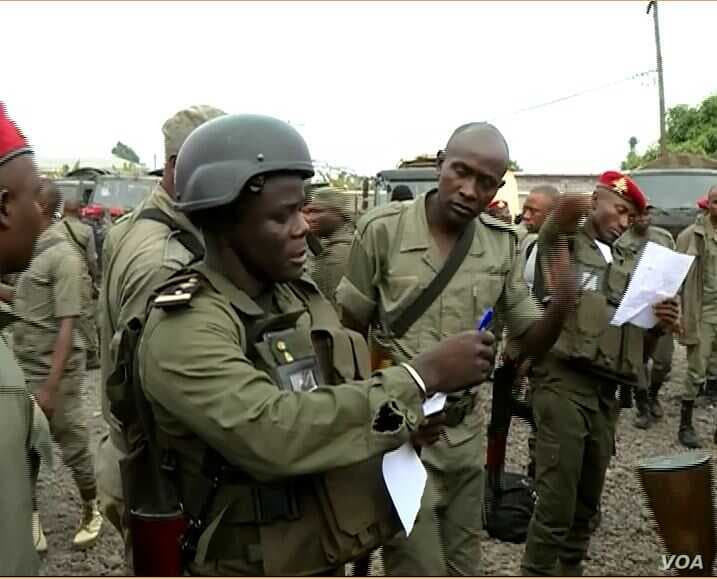YAOUNDÉ, Cameroon – Cameroon’s only Catholic cardinal is in hot water for suggesting the military take over the country for a short period of time to impose “order and discipline” as the country battles a separatist insurgency.
Cardinal Christian Tumi, 90, made his remarks in his new book My Night in Captivity, speaking about his Nov. 5, 2020, kidnapping by the rebels.
The insurgency has been raging in the country’s English-speaking North West and South West regions for nearly five years, after the government violently suppressed protests by Anglophone teacher and lawyers complaining about discrimination by the French-speaking majority.
In his book, Tumi recalls a conversation he had with the separatists, referred to as “amba boys” by the local population.
“I told them I stand for federalism,” Tumi writes, referring to the system Cameroon used until 1972, when a unitary government was declared.
RELATED: Cardinal Tumi says things improving in Cameroon’s troubled Anglophone areas
He also reflected on the conflict, and what it would take to achieve a peaceful resolution.
“If tomorrow, President Paul Biya grants a general amnesty and orders the military back to the barracks, the separatists could also drop their weapons, and there will be peace,” Tumi said.
But on further reflection, the contemplates what would happen if the separatists refused to disarm.
“The more I think about it, the more I am convinced that if the army had to withdraw to the barracks and the ‘amba boys’ refused to lay down their arms, the army that knows how to impose order and discipline would have to come out of the barracks and take over the country for a short period of time. After imposing order and discipline, it should then organize elections and return power to the civilians.”
Several of Biya’s supporters said with these words, Tumi was implicitly calling for the military to stage a coup d’état to overthrow Biya, who has ruled Cameroon for over 38 years.
Tumi has long argued that Biya, now 88, has been in power for too long.
“If I were Paul Biya, I would resign, because for more than 30 years in power, at the age of almost 80, I would love to see a change. Change is always good,” the cardinal said in 2012.
“…that is why the Catholic Church says as a Bishop, once you have attained 75 years of age, you should apply to leave power. That is what I did; that is what Bishop Awa and others did, so that a younger person, who is still active and agile, can continue. So change is good for the Church as well as for society,” He said.
That position hasn’t changed. Speaking to Crux in November, the cardinal said it was inconceivable Biya at 88 could still effectively govern the nation and accused the leader of presiding over a country steeped in corruption and gross mismanagement.
“The dominant cause [of the current crisis] is bad governance. 92 percent of respondents said the country is badly governed,” Tumi told Crux.
RELATED: Cameroon cardinal says he ‘refused to be tortured psychologically’ during kidnapping
Despite all of this, the cardinal remains hopeful that the crisis will soon come to an end.
“I’ve already met some of these men [armed separatists] who are in the bush with guns,” Tumi said in his new book.
“Today, some of them don’t even know why they are fighting. It seems that those [Cameroonian nationals] in the United States who are fighting for an independent state told them that the United Nations would intervene and that the conflict would be resolved within a year. But these leaders have lost control of the situation … the leaders are no longer in control,” the cardinal explained.
He said many separatist fighters were already coming out of the bush, noting that he had already received some of them in Douala, Cameroon’s economic capital.
“I try to help them reintegrate society,” he said. He added the Archbishop Andrew Nkea of Bamenda – the largest city in the Anglophone regions – had already brought back 400 separatists from the bush in the North West Region.
Speaking to Sputnik, a Russian news agency, Tumi said he has met several of the ex-fighters when visiting his home village of Kumbo, located in the North West Region.
“Their chief told me that he intended to take refuge in Nigeria. One of the revelations he made to me was that the majority of those he is with are Nigerians and that he has only one Cameroonian in his ranks. Since this crisis began, I have been going to Kumbo every year to my home to really get a feel for what is going on,” Tumi said.













